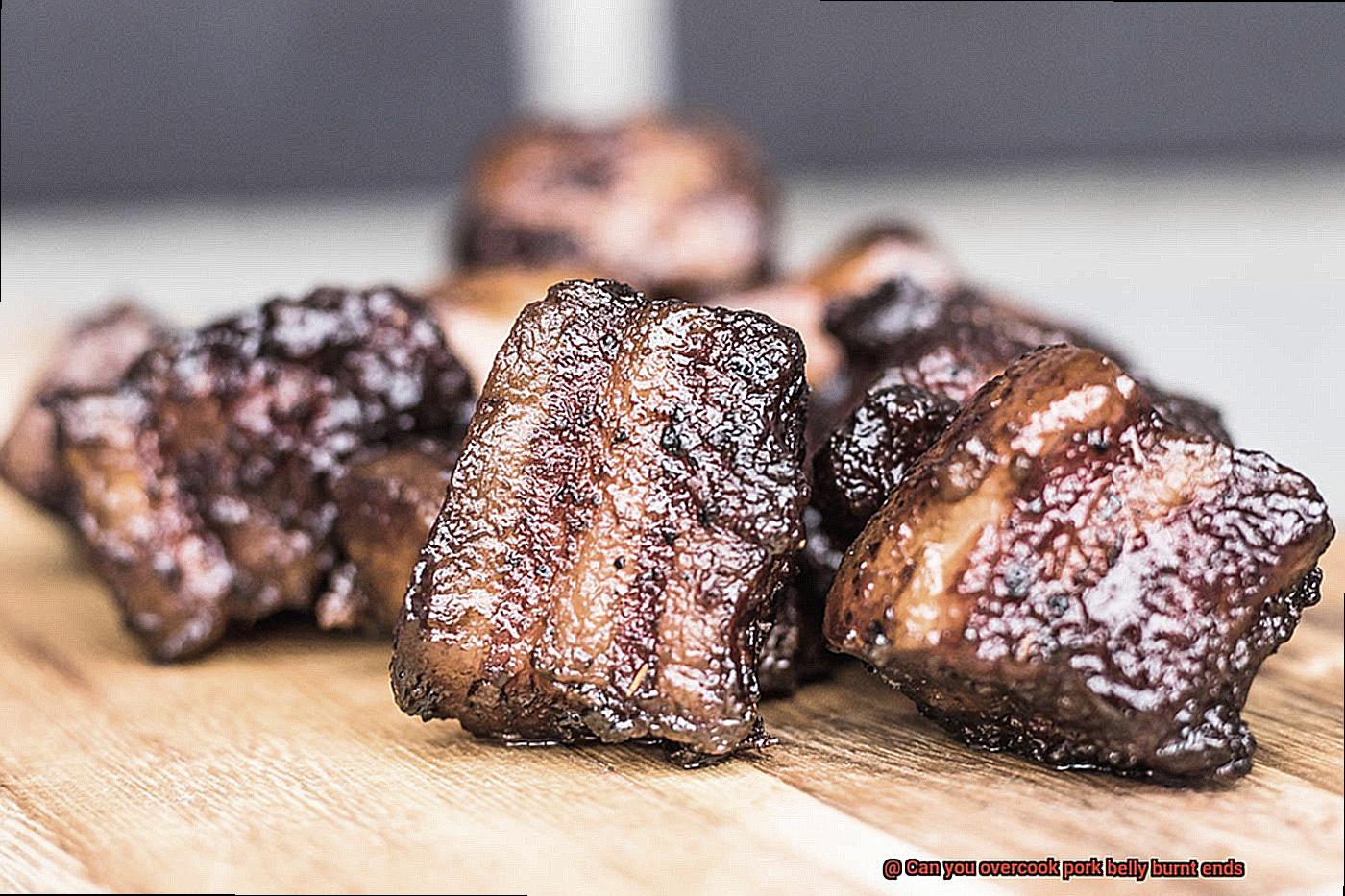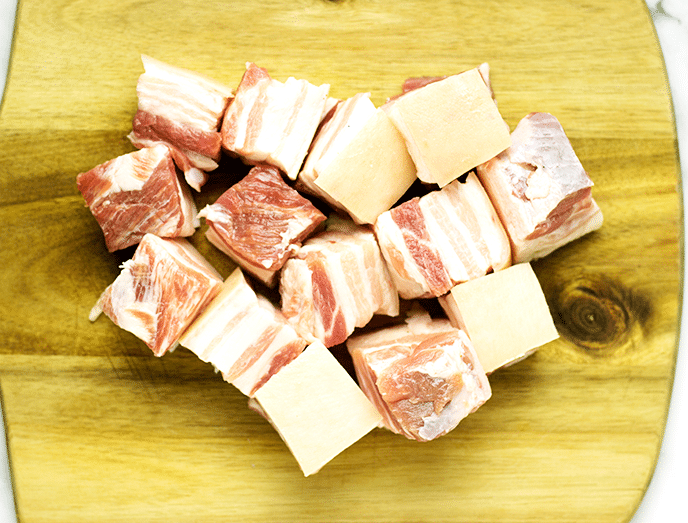Smoked pork belly is one of my favorite foods to prepare. This was one of the first foods my wife and I worked on when I first tried to teach her how to smoke right. Although we can’t decide who makes this better, we both agree that it tastes delicious.
Today, you will learn how to make this recipe yourself. It takes a few hours to prepare but it’s well worth the effort. Making this for dinner is easiest if you start around lunchtime. That way, everything will be ready when dinner time comes around.
Pork belly is a sublime cut of meat when done right—tender, unctuous and richly flavored. But improperly cooked pork belly can turn into a chewy rubbery mess. As a lover of succulent and melt-in-your-mouth pork belly, I’ve learned how imperative it is to avoid overcooking this fatty and collagen-rich cut.
In this guide, we’ll cover how to recognize when pork belly is overcooked and strategies to prevent it from happening in the first place. Whether you’re roasting, braising, smoking, or otherwise cooking pork belly, use these tips to turn out perfect porky deliciousness every time.
How to Tell If Pork Belly Is Overcooked
It’s not difficult to take pork belly from sublime to tragic Here are the telltale signs that your pork belly has surpassed its prime
- Extremely tough, chewy texture
- Meat shreds into dense, rubbery strands
- Fat has rendered out completely leaving meat very dry
- Meat has pulled away from bones and fat cap
- Grayish tinge to exterior meat and fat
Well-cooked pork belly should be fork tender and succulent. If you bite into pork belly that has any of these qualities, you will find that it is overcooked.
Common Causes of Overcooked Pork Belly
Many different missteps along the cooking process can lead to overdone pork belly. Here are the top culprits to watch out for:
- Cooking at too high temperature – High heat dries out pork belly quickly. Ideal temp range is 225°F – 250°F.
- Not cooking long enough – Pork belly needs extended time for fat to render and collagen to break down.
- Incorrect method for cut – Braising, roasting, or smoking are best. Grilling and pan frying can overcook.
- Inadequate moisture – Lack of braising liquid or mopping while smoking leaves pork belly dry.
- Cut too thin – Thin slices overcook faster than thick-cut pork belly.
- Poor quality meat – Factory farmed pork tends to cook up tougher than sustainably raised.
Tips to Avoid Overcooked Pork Belly
Now that we know what causes overcooking, we can avoid it by using the right method:
- Cook pork belly low and slow at 225°F – 250°F.
- Allow at least 2 hours for braises and roasts to fully tenderize.
- Choose a thick cut, ideally 2-inches thick or more.
- Brine pork belly before cooking to boost moisture retention.
- For smoking, keep the temperature under 250°F and mop with a vinegar spray.
- Cook just until fork tender then immediately remove from heat.
- Let rest 15 minutes before serving for juices to redistribute.
- Use a thermometer and stop cooking at 195°F internal temp.
Best Cooking Methods for Pork Belly
Stick to moist cooking methods that are easy on the pork belly if you want it to be fork-tender. Here are the top preparation styles:
- Low and slow braising – Braise fatty-side up in flavorful liquid like wine, broth, juice etc.
- Low temp roasting – Roast seasoned pork belly uncovered to render fat.
- Smoking – Ideal for flavoring. Keep temps low and spray with vinegar mop.
- Sous vide – Cooks evenly edge to edge. Chill then sear after.
- Stewing – Simmer pieces in sauce mixture to tenderize collagen.
Avoid quick, high-heat methods like grilling, pan searing, and sautéing which will overcook pork belly.
Salvation for Overcooked Pork Belly
Despite your best efforts, you may still occasionally end up with overdone pork belly. Don’t fret – you can salvage it into tasty dishes:
- Dice or shred overcooked pork belly and braise into a hearty stew or chili.
- Chop into small bits to render for pork fat rice.
- Simmer in liquid to create French onion soup enriched with pork fat.
- Use in place of ground meat for burritos, tacos, pizza, etc.

Can you overcook pork belly?
It’s very possible to overcook pork belly. You will know when pork belly is overcooked because the muscle and fat will become rubbery. This is why it’s important to not set the temperature too high and to not cook too long.
Like with making all other foods, patience is key. If you rush the process, the recipe won’t come out as good as it should.
Is pork belly the same as bacon?
While they are both cut from the underside of the pig, there is a difference between the two.
Starting with pork belly, it is the whole slab cut from the belly of the pig. Pork belly is also uncured.
Bacon is also made from pig belly, but not from the same slab as pork belly. Unlike pork belly, bacon is cured or brine. Also, bacon can be made from different parts of the pig, like the back and shoulders.


MEAT BASICS | Roasted Pork Belly (2 Ways) | Simple Carnivore Recipe
FAQ
Does pork belly get more tender the longer you cook it?
Why is my pork belly still tough?
How do you know when pork belly is done?
Can you overcook pork belly burnt ends?
